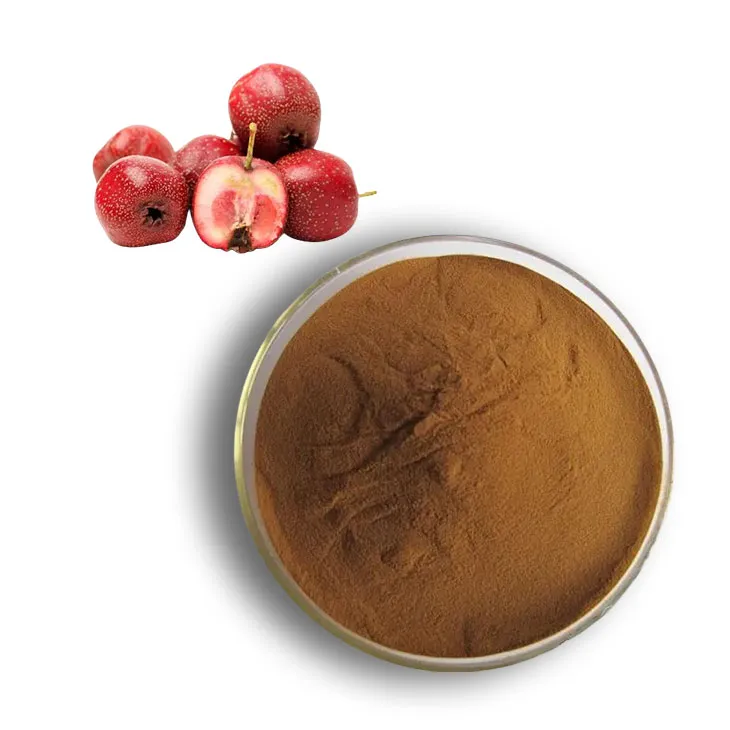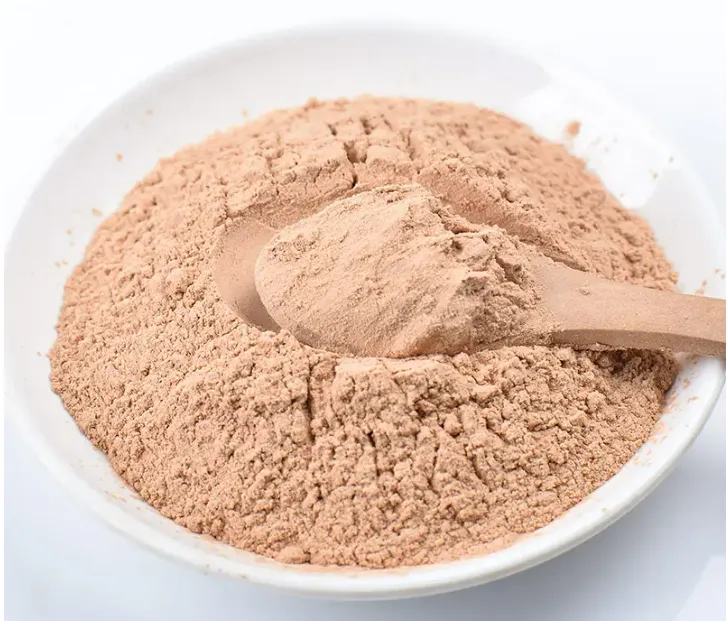- 0086-571-85302990
- sales@greenskybio.com
Can hawthorn extract reduce cholesterol?
2024-11-13

1. Introduction
High cholesterol is a significant health concern worldwide, as it is associated with an increased risk of cardiovascular diseases such as heart attacks and strokes. In the search for natural remedies to manage cholesterol levels, Hawthorn Extract has emerged as a potential candidate. Hawthorn, a shrub native to Europe, Asia, and North America, has a long history of use in traditional medicine for various health conditions. This article aims to explore the scientific evidence behind whether Hawthorn Extract can indeed reduce cholesterol levels and its role in maintaining overall health.

2. Scientific Studies on Hawthorn Extract and Cholesterol
2.1 Animal Studies
Several animal studies have been conducted to investigate the effects of hawthorn extract on cholesterol. For example, in a study on rats fed a high - cholesterol diet, those given hawthorn extract showed a significant reduction in total cholesterol levels compared to the control group. The extract also appeared to have a positive impact on lipid metabolism in the liver, reducing the accumulation of triglycerides. Another animal study demonstrated that hawthorn extract could increase the activity of enzymes involved in cholesterol breakdown, such as lipoprotein lipase. These findings suggest that hawthorn extract may have a beneficial effect on cholesterol levels in animals, but it is important to note that the results may not directly translate to humans.
2.2 Human Studies
There have been some human studies on the relationship between hawthorn extract and cholesterol as well. In a small - scale clinical trial, participants with mildly elevated cholesterol levels were given hawthorn extract for a period of several weeks. The results showed a modest decrease in total cholesterol and low - density lipoprotein (LDL) cholesterol, which is often referred to as "bad" cholesterol. However, the sample size in this study was relatively small, and more extensive research is needed to confirm these findings. Another study looked at the effects of hawthorn extract in combination with lifestyle changes, such as diet and exercise. The combination approach seemed to have a more pronounced effect on cholesterol reduction, indicating that hawthorn extract may work best as part of a holistic strategy for managing cholesterol.

3. Mechanisms of Action
3.1 Antioxidant Properties
Hawthorn extract is rich in antioxidants, such as flavonoids and phenolic acids. These antioxidants play a crucial role in protecting the body against oxidative stress, which can damage cells and contribute to the development of various diseases, including those related to high cholesterol. Oxidative stress can lead to the modification of LDL cholesterol, making it more atherogenic (prone to causing plaque buildup in the arteries). By scavenging free radicals and reducing oxidative stress, hawthorn extract may help prevent the oxidation of LDL cholesterol, thereby reducing its harmful effects on the cardiovascular system.
3.2 Effects on Lipid Metabolism
The extract may also influence lipid metabolism in the body. It has been suggested that hawthorn extract can enhance the function of the liver in processing lipids. The liver is a key organ in cholesterol metabolism, responsible for synthesizing, transporting, and excreting cholesterol. Hawthorn extract may stimulate the liver to increase the production of high - density lipoprotein (HDL) cholesterol, which is known as "good" cholesterol. HDL cholesterol helps remove excess cholesterol from the bloodstream and transport it back to the liver for excretion. Additionally, hawthorn extract may inhibit the synthesis of cholesterol in the liver, reducing the overall production of cholesterol in the body.

4. Hawthorn Extract as Part of a Holistic Approach
While the evidence for hawthorn extract's cholesterol - lowering effects is promising, it is important to view it as part of a holistic approach to health. Lifestyle factors such as diet, exercise, and stress management play a significant role in maintaining healthy cholesterol levels.
4.1 Diet
A diet rich in fruits, vegetables, whole grains, and lean proteins is essential for heart health. When combined with hawthorn extract, a healthy diet can further enhance the potential benefits. For example, consuming foods high in soluble fiber, such as oats and beans, can help lower cholesterol levels. Incorporating hawthorn extract into a diet that already focuses on these heart - healthy foods may provide an added boost to cholesterol management.
4.2 Exercise
Regular physical activity is another crucial component of a holistic approach. Exercise helps increase HDL cholesterol levels, improves cardiovascular function, and aids in weight management. Combining exercise with the use of hawthorn extract may have a synergistic effect on cholesterol reduction. Even moderate exercise, such as brisk walking for 30 minutes a day, can make a difference when paired with the potential cholesterol - lowering properties of hawthorn extract.
4.3 Stress Management
High stress levels can also impact cholesterol levels. Chronic stress may lead to hormonal imbalances that can affect lipid metabolism. Stress - management techniques, such as meditation, yoga, or relaxation exercises, can help maintain a healthy balance in the body. When used in conjunction with hawthorn extract, these stress - management practices may contribute to better overall cholesterol control.
5. Considerations and Precautions
Before using hawthorn extract for cholesterol management, there are several considerations and precautions to keep in mind.
5.1 Dosage
The appropriate dosage of hawthorn extract can vary depending on factors such as the individual's health status, age, and the specific product being used. It is important to follow the recommended dosage on the product label or consult a healthcare provider. Taking too much hawthorn extract may lead to potential side effects, such as digestive problems or interactions with other medications.
5.2 Interactions with Medications
Hawthorn extract may interact with certain medications, particularly those used to treat heart conditions or regulate blood pressure. For example, it may potentiate the effects of medications like digoxin, which could lead to an increased risk of side effects. If you are taking any medications, it is crucial to inform your healthcare provider before starting hawthorn extract to avoid any potential drug - interactions.
5.3 Quality and Purity of the Extract
Not all hawthorn extracts are created equal. The quality and purity of the extract can vary depending on the manufacturing process and the source of the hawthorn. It is advisable to choose a high - quality product from a reputable manufacturer. Look for products that have been tested for potency and purity to ensure that you are getting a reliable and effective extract.
6. Conclusion
In conclusion, there is some evidence to suggest that hawthorn extract may have the potential to reduce cholesterol levels. Animal studies and preliminary human trials have shown promising results in terms of cholesterol - lowering effects. The mechanisms of action, including antioxidant properties and effects on lipid metabolism, provide a scientific basis for its potential role in managing cholesterol. However, more research, particularly large - scale, well - designed human studies, is needed to firmly establish the effectiveness of hawthorn extract in reducing cholesterol. When considering the use of hawthorn extract for cholesterol management, it should be seen as part of a holistic approach that includes a healthy diet, regular exercise, and stress management. Additionally, proper dosage, awareness of potential interactions with medications, and the selection of a high - quality extract are all important factors to ensure safety and effectiveness. Overall, hawthorn extract holds promise as a natural supplement for those interested in maintaining healthy cholesterol levels, but further investigation is required to fully understand its benefits and limitations.
FAQ:
What is hawthorn extract?
Hawthorn extract is a substance derived from the hawthorn plant. It contains various bioactive compounds such as flavonoids, procyanidins, and phenolic acids. These components are believed to contribute to its potential health - promoting effects.
How does hawthorn extract potentially reduce cholesterol?
It may work through multiple mechanisms. Some studies suggest that the flavonoids in hawthorn extract can inhibit the synthesis of cholesterol in the liver. Also, it might enhance the excretion of cholesterol from the body. Additionally, it could have antioxidant effects that protect cells involved in cholesterol metabolism from damage.
Are there any scientific studies supporting hawthorn extract's cholesterol - reducing effect?
Yes, there are some scientific studies. For example, certain in - vitro and animal studies have shown promising results regarding its impact on cholesterol levels. However, more human - based clinical trials are still needed for conclusive evidence. Some of these studies have measured a reduction in LDL (low - density lipoprotein, often considered bad" cholesterol) levels in experimental models treated with hawthorn extract.
Can hawthorn extract replace cholesterol - lowering medications?
No. Currently, hawthorn extract should not be seen as a replacement for prescribed cholesterol - lowering medications. While it may have some beneficial effects on cholesterol, these are not as well - established or as potent as those of medications. It could potentially be used as a complementary approach under the guidance of a healthcare provider.
What are the potential side effects of using hawthorn extract for cholesterol management?
Generally, when used in moderation, hawthorn extract is considered safe for most people. However, some individuals may experience mild side effects such as digestive discomfort, dizziness, or allergic reactions. Pregnant or breastfeeding women should be especially cautious and consult a doctor before using hawthorn extract.
Related literature
- "The Effects of Hawthorn Extract on Lipid Metabolism: A Review of Current Research"
- "Hawthorn Extract: Potential Role in Cholesterol Reduction and Cardiovascular Health"
- "Investigating the Mechanisms of Hawthorn Extract in Cholesterol - Lowering: Preclinical and Clinical Perspectives"
- ▶ Hesperidin
- ▶ citrus bioflavonoids
- ▶ plant extract
- ▶ lycopene
- ▶ Diosmin
- ▶ Grape seed extract
- ▶ Sea buckthorn Juice Powder
- ▶ Beetroot powder
- ▶ Hops Extract
- ▶ Artichoke Extract
- ▶ Reishi mushroom extract
- ▶ Astaxanthin
- ▶ Green Tea Extract
- ▶ Curcumin Extract
- ▶ Horse Chestnut Extract
- ▶ Other Problems
- ▶ Boswellia Serrata Extract
- ▶ Resveratrol Extract
- ▶ Marigold Extract
- ▶ Grape Leaf Extract
- ▶ blog3
- ▶ blog4
- ▶ blog5
-
Organic Tongkat Ali extract powder factory.
2024-11-13
-
How to make powder with ashwagandha extract.
2024-11-13
-
Rosehip extract manufacturers from China.
2024-11-13
-
The best cat's claw extract in nature.
2024-11-13
-
Chinese Dandelion Leaf Extract Suppliers.
2024-11-13
-
Lemon Juice Powder
2024-11-13
-
Tongkat Ali Extract Powder
2024-11-13
-
Natural grape seed extract
2024-11-13
-
Black Pepper Extract
2024-11-13
-
Alfalfa Meal
2024-11-13
-
Okra Extract
2024-11-13
-
Grape Leaf Extract
2024-11-13
-
Hesperidin
2024-11-13
-
Avocado Extract Powder
2024-11-13
-
Soy Extract
2024-11-13





















